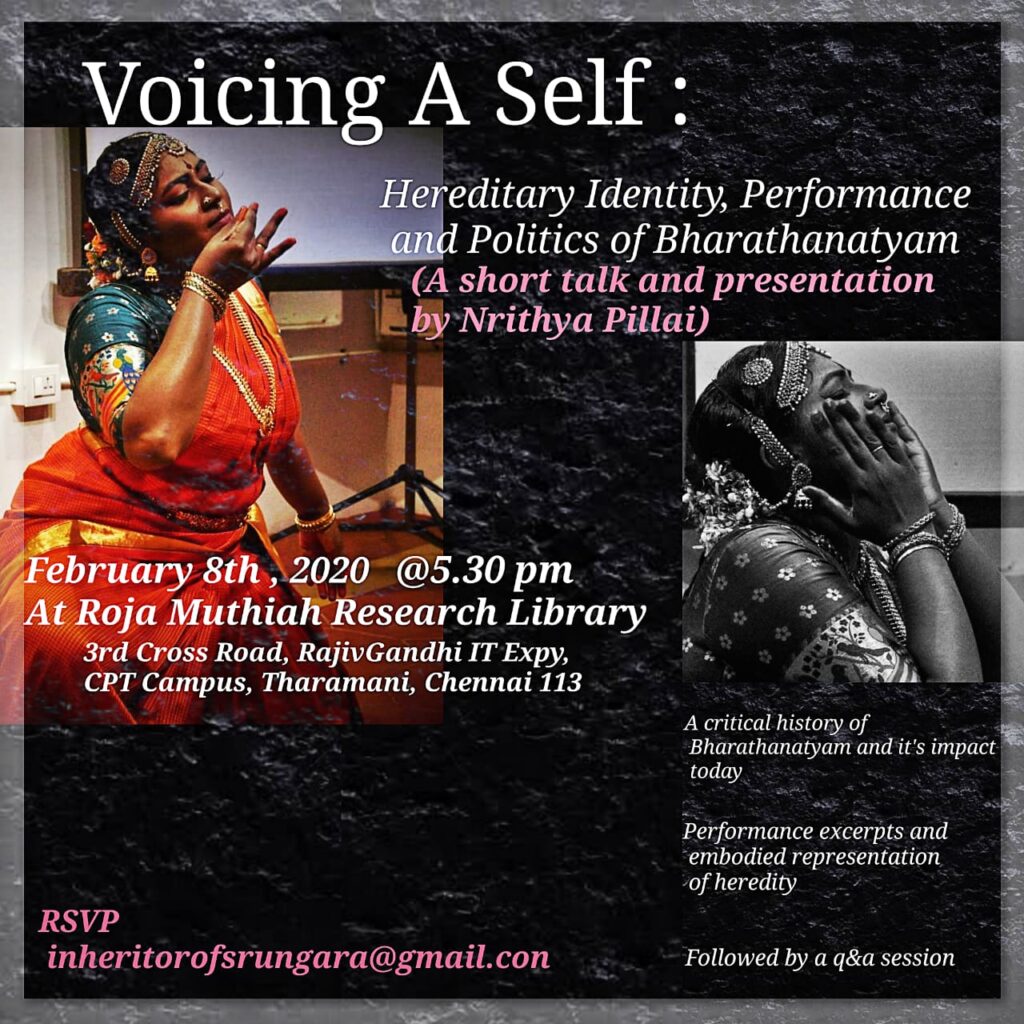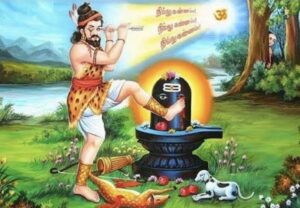Invitation – Lecture and Demonstration

About the talk and demonstration
In this talk, Nrithya Pillai discusses her position as a hereditary woman artist from the isai velalar (formerly devadasi) community of Tamilnadu. She will address socio-political issues related to both identity as well as performance, for she understands these to be deeply related. She will talk about issues such as Indian nationalism, “devadasi reform,” the reinvention of dance in Madras in the 1930s, as well as questions around the deeply political nature of today’s Bharatanatyam as both a discourse and a practice. This event will feature a lecture, demonstration, and also short excerpts of performance.
About the speaker/performer
Nrithya Pillai is a dancer, dance composer, singer, writer, speaker, and dance instructor who proudly claims her hereditary nattuvanar-devadasi lineage. Artistic Director of Rajarathnalaya, a bharathanatyam institution founded by her maternal grandfather Swamimalai Rajarathnam Pillai, she consciously preserves and reanimates the rich repertoire and the teaching and choreographic practices of her celebrated ancestors, who include Vaitheeswarankoil Meenakshisundaram Pillai, T.K Swaminatha Pillai and Padmashri Vazhuvoor B. Ramiah Pillai. Epitomizing the teacher-nattuvanar of the hereditary paramparais, and carving out her own space as a performer with impeccable training and vast creativity, Nrithya nevertheless represents a new kind of artistic and intellectual engagement with the troubled history of bharatanatyam in the long 20th century. She vigorously challenges the power relationships and ideologies that made the form unavailable to women of her community, and advocates fiercely for the restoration of credit for bharatanatyam technique, repertoire, and philosophy to the hereditary isai vellala community of practitioners. Her performances and her writings about the upper caste appropriation of this form, which have evoked both enthusiastic accolades and awards on the one hand and resistance on the other, are at once embodied research, political intervention, and a labour of abiding love towards the traditional custodians of the form–especially towards her foremothers, who include the remarkable Tiruvalaputtur Kalyani. Nrithya’s voice, raised against casteism in the contemporary dance world, is unique in the field today, and her message against historical misrepresentation is relevant and powerful.








